The Spring 2024 cohort of the New York State Sustainable Materials Management (NYS SMM) Stewardship Program has concluded with another successful round of creative engagement projects aimed at fostering curiosity and greater understanding of SMM in local communities and beyond.
The NYS SMM Stewardship Program is a long running, student-centered program developed by the Syracuse University Center for Sustainable Community Solutions (CSCS) and administered in partnership with the New York State Association for Reduction, Reuse and Recycling (NYSAR3) and the Center for Sustainable Materials Management (CSMM) at SUNY ESF. This annual opportunity provides college/university students from across the state with a unique chance to explore and deepen their knowledge of the concepts of “sustainable materials management” — a term that reflects a holistic approach to the use and reuse of society’s materials throughout their entire life cycles, with a focus on environmental impact and conservation of resources.
Topics studied through the program include traditional recycling, composting, single-use plastics, reuse/repair, textiles, and effective community engagement, as well as current issues and challenges in the industry including resource extraction, overconsumption, “waste” as a concept, and environmental pollution.
This virtual paid learning experience currently occurs in the Spring semester each year. Students receive training, mentoring, and guidance to engage local communities through hands-on, experiential SMM projects that work to address waste challenges they are currently facing.
This unique remote opportunity has helped future SMM leaders launch their careers. Many stewards have transitioned directly into SMM-related jobs after graduation from their respective colleges, leveraging the valuable skills and professional experience gained through the program.
The Projects Link
In Spring 2024, 19 stewards from 12 NYS colleges/universities (including SUNY New Paltz, SUNY-ESF, Binghamton University, and St. Lawrence University) completed the program, resulting in a variety of community engagement projects, such as compost bin building, podcast interviews with SMM industry leaders, and in-class interactive presentations at local K-12 schools.
Please see below for samples and a list of our stewards’ Spring 2024 projects!
Interested in becoming a steward?
Do you know someone who is interested in applying to the NYS SMM Stewardship Program? Applications for Spring 2025 will open in September 2024 and can be found on the NYS SMM Stewardship webpage.
Interested in supporting a steward?
If you have a project that a steward could help with, or are interested in working with a future SMM steward, please contact CSCS Program Associate Morgan Ingraham at meingrah@syr.edu for more information.
Isabela Fraguada, Stony Brook University
Topic: Animation & Social Media Outreach
Isabela Fraguada created an animated character named Turkeybacon, a veteran of the Marine wars against plastic pollution and advocate for SMM. Through a series of Instagram outreach posts, Turkeybacon explains and demonstrates concepts of SMM such as reuse, repair, and composting. Follow the QR code to see Turkeybacon in action, or follow him on @turkeybaconturtle on Instagram!
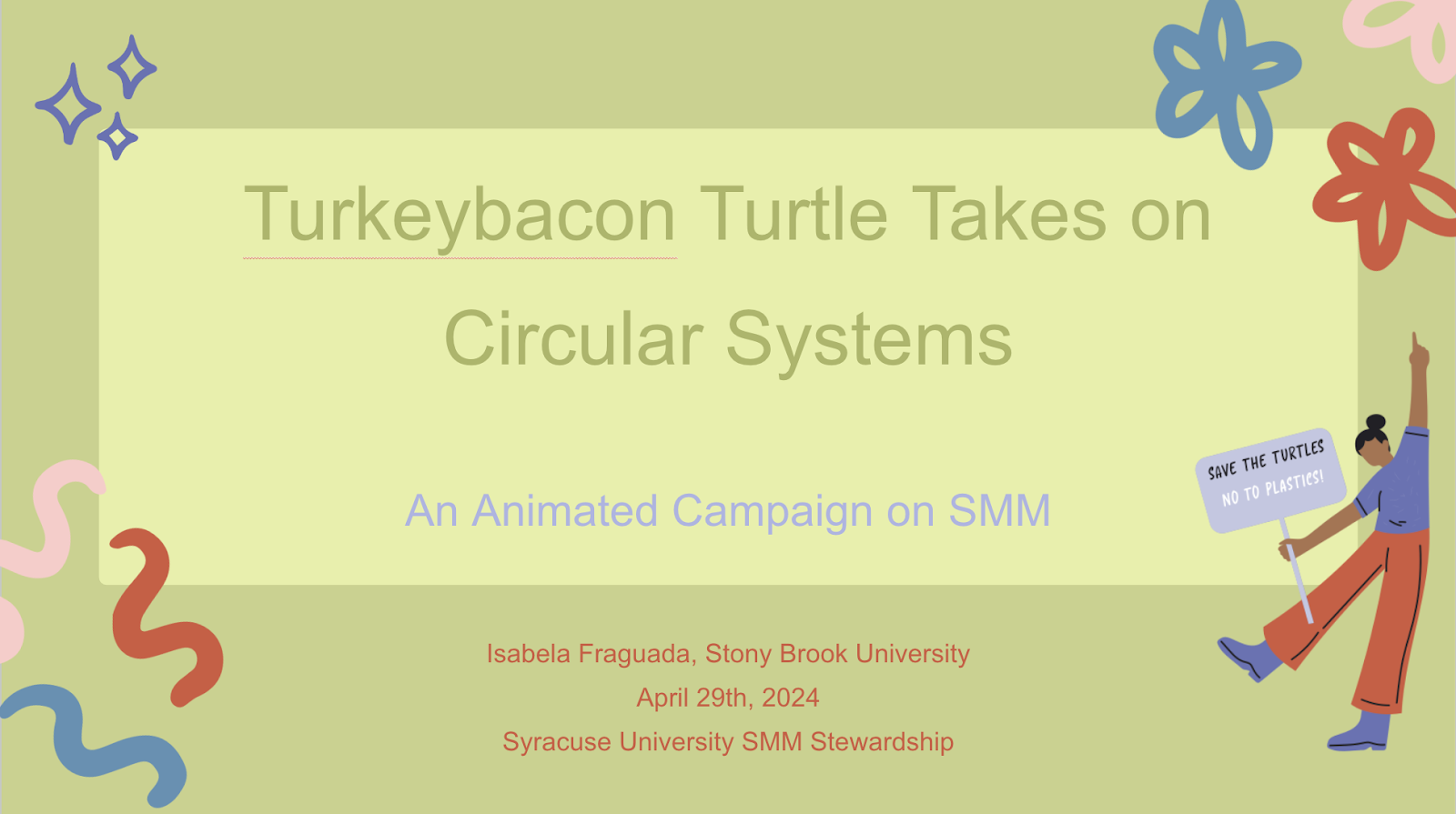
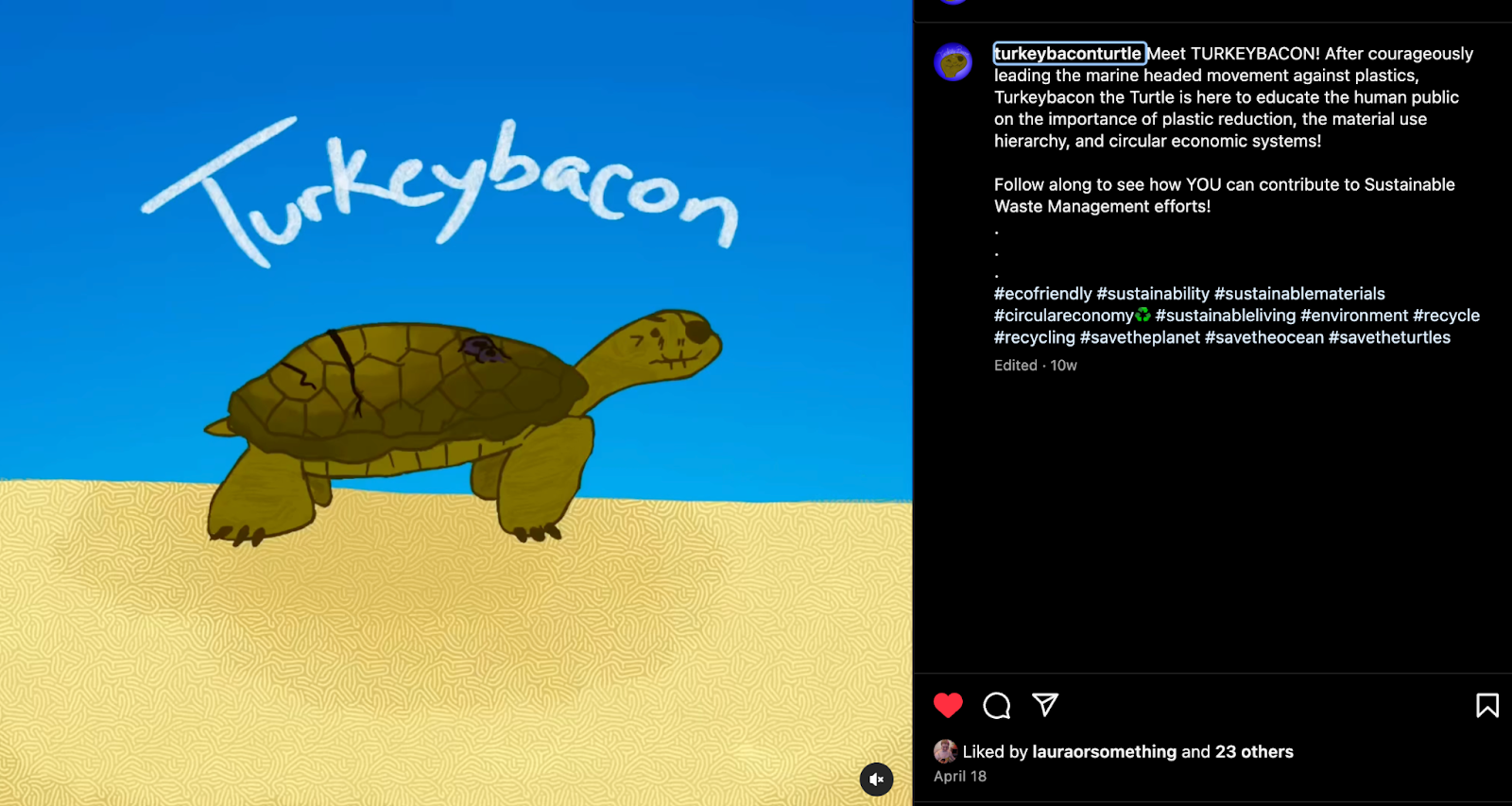
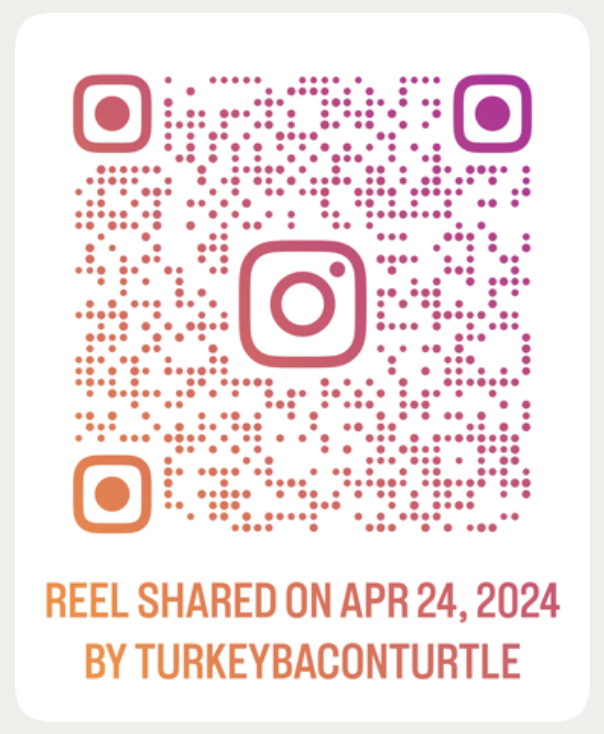
Richard Correa-Lampasona, St. John’s University
Topic: Extended Producer Responsibility Podcast – Interview with Product Stewardship Institute
Richard Correa-Lampasona hosted a podcast interview with Scott Cassel, CEO and Founder of the Product Stewardship Institute. This educational podcast gives a background on Extended Producer Responsibility (EPR) policy, as well as an insight into what PSI is all about. Follow the QR code or go to tinyurl.com/SMMStewardEPR to listen to the podcast!
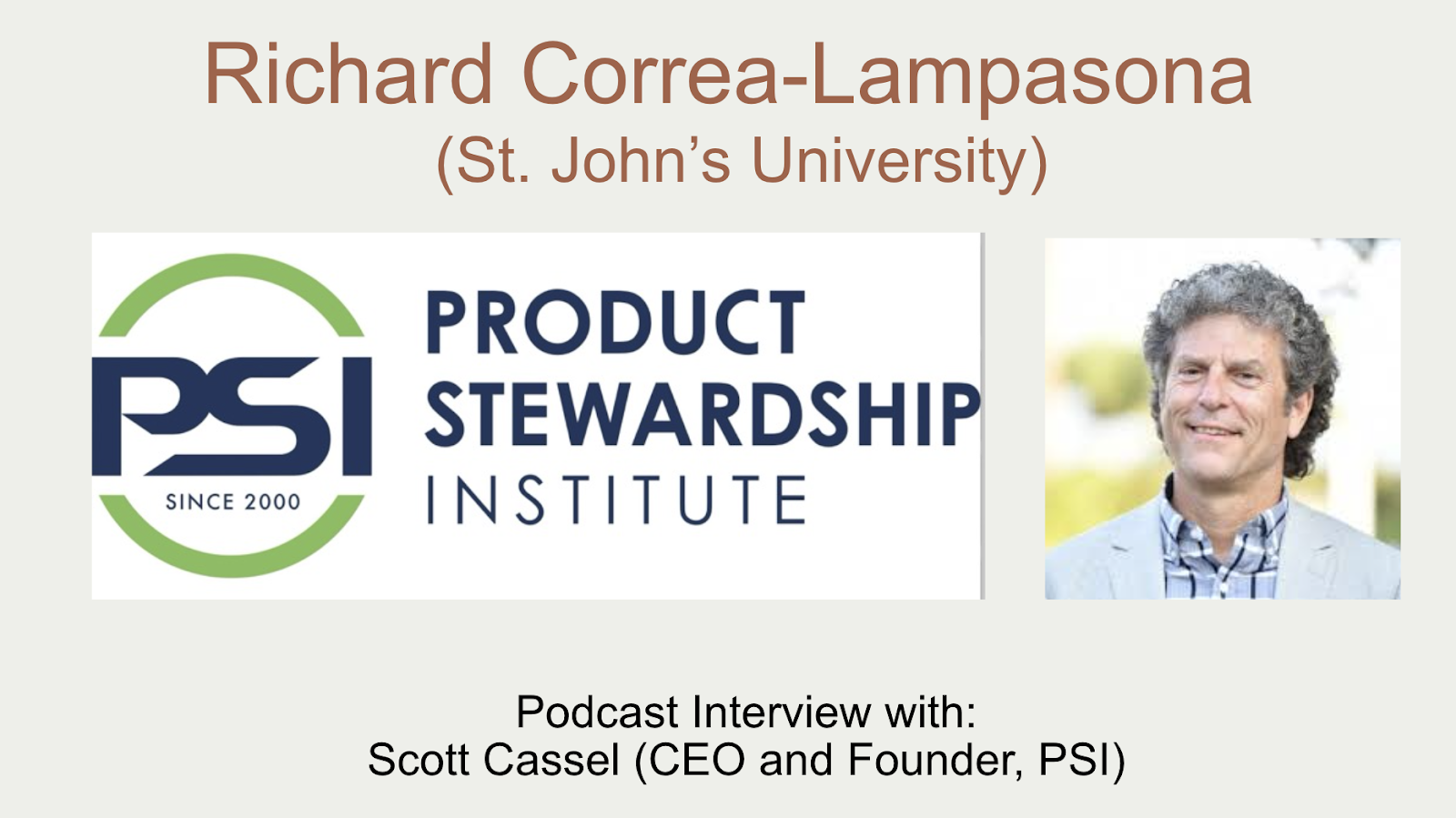
Wren Kingsley, SUNY New Paltz
Topic: SMM Education & Advocacy Campaign at Local Middle School
Wren Kingsley worked with New Paltz Middle School’s Climate Club in a series of SMM-related workshops. The first workshop, Recycling 101, consisted of an in-class game where New Paltz Middle School students sorted items to learn about what was recyclable or not. Then, students were taken on a tour of the New Paltz Recycling and Reuse Center. Back in the classroom again, students built a worm bin to learn about composting. Finally, students engaged in a letter-writing campaign to local government officials to express their concerns about climate change.
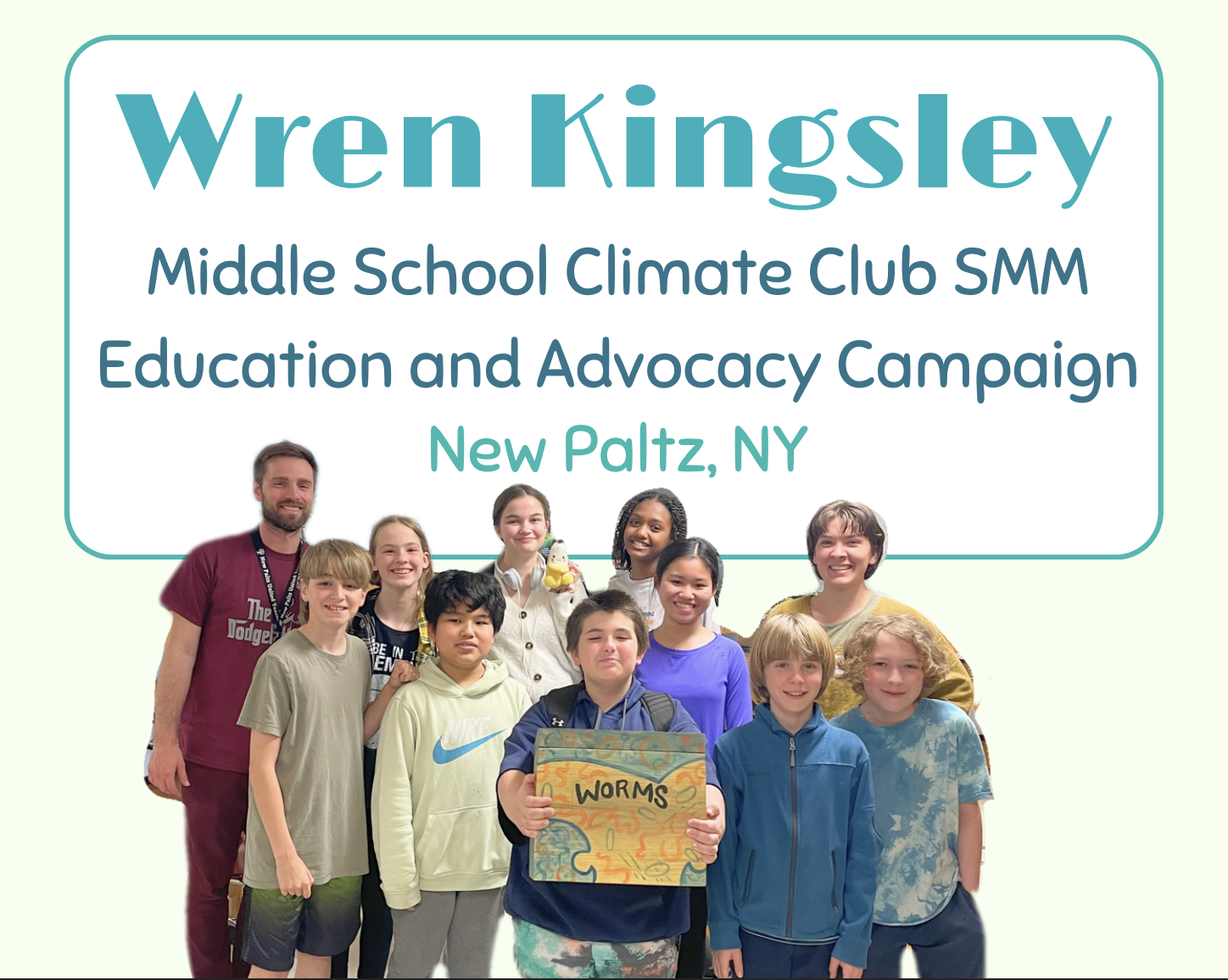
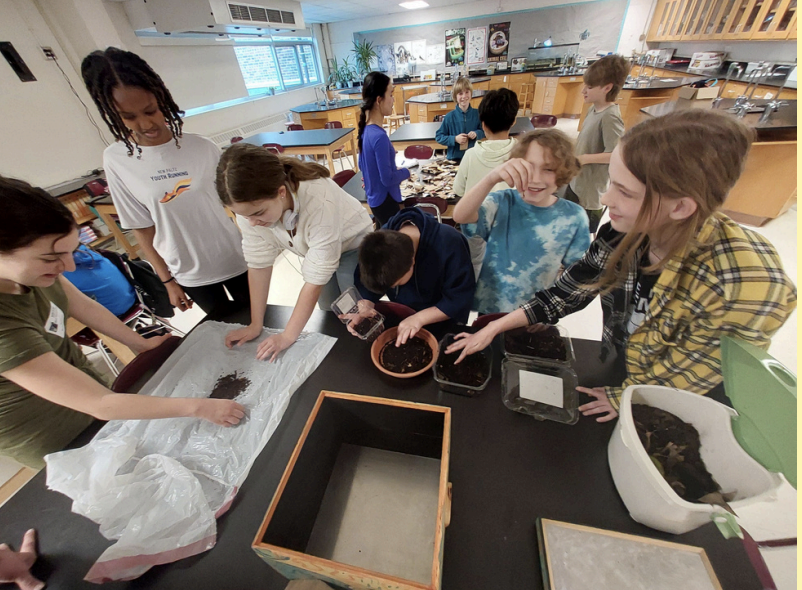
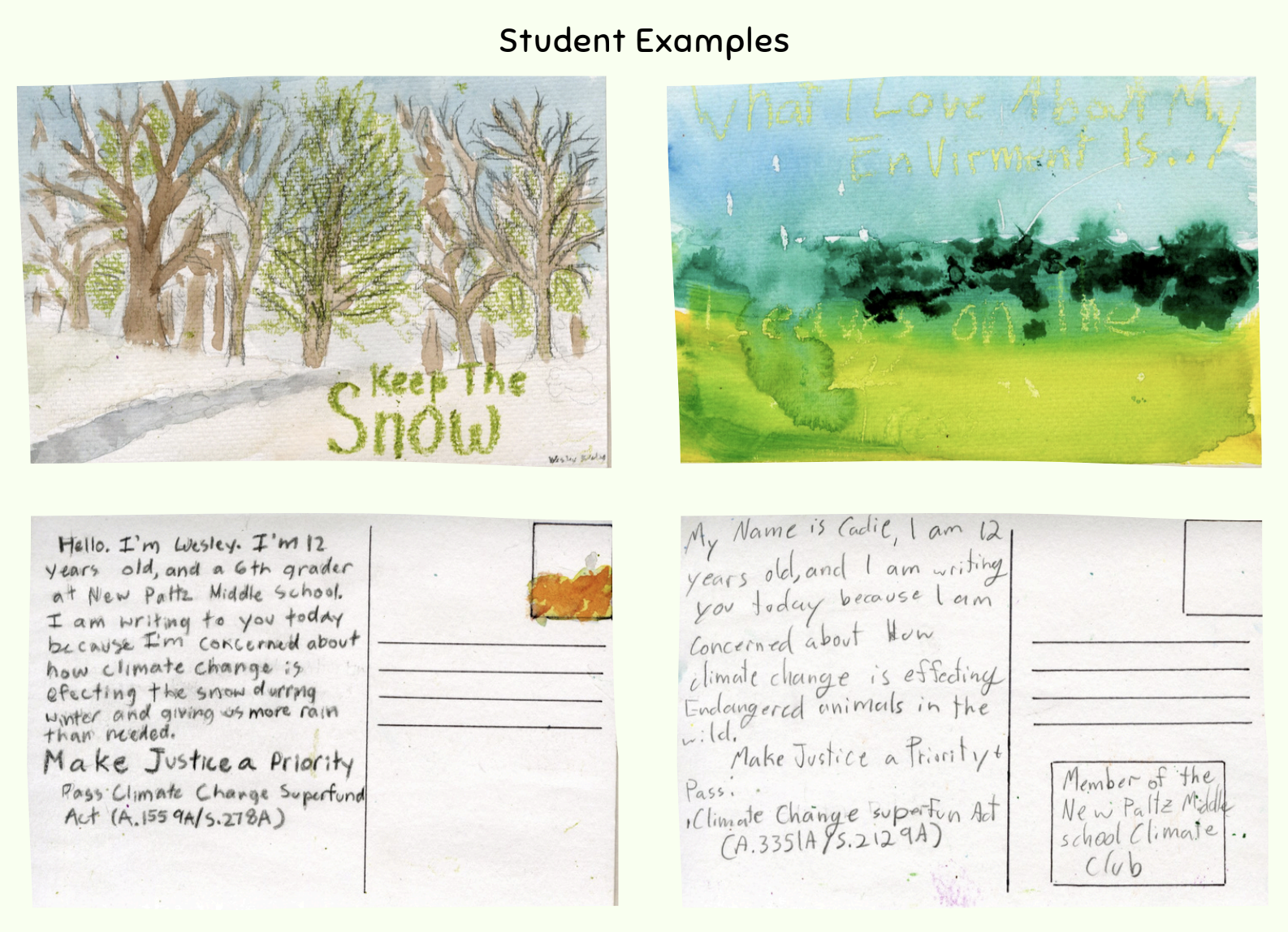
Other Projects
Litter Cleanup Composition and Outreach: Lauren Hamilton Musso, SUNY-ESF
Waste in Small Business: Willow Mercer, Stony Brook University
Repair Day Pop-Up Event: Shawna Stevenson, Binghamton University
Waste in Local School: Brady Hartnett, Syracuse University
How University Students View Single-Use Plastic Waste on Campus: Elizabeth Vool, Stony Brook University
Upcycling Materials for Less Waste: Kimberly Bravo, St. Lawrence University
Middle School Recycling Education: Maggie Saville, SUNY Binghamton
Compost for Community: Brianna Rodriguez, SUNY New Paltz
College Campus Clothing Swap: Kade DeMarle, SUNY Albany
Waste Tracking in Elementary Schools: Janice Yohannan, Stony Brook University
Increasing the Engagement of the Campus Thrift Store: Valeria Obregon, St. Lawrence University
Pop-Up Thrift Shop & Clothing Swap: Jessie Mazzeo, SUNY Geneseo
Campus Litter Analysis: Dolphins Collect: Meghan Walton, Le Moyne College
Climate Smart Communities Waste Reduction Education Campaign: Caitlyn Davey, Binghamton University
Feasible SMM Campaign: A Digestible Approach to Zero-Waste: Jordan Winkelman, Syracuse University
Thank you to our partners
The NYS SMM Stewardship Program is administered in partnership with NYSAR3 and with grant funding from the United States Department of Agriculture (USDA), U.S. Environmental Protection Agency (EPA), and CSMM.
